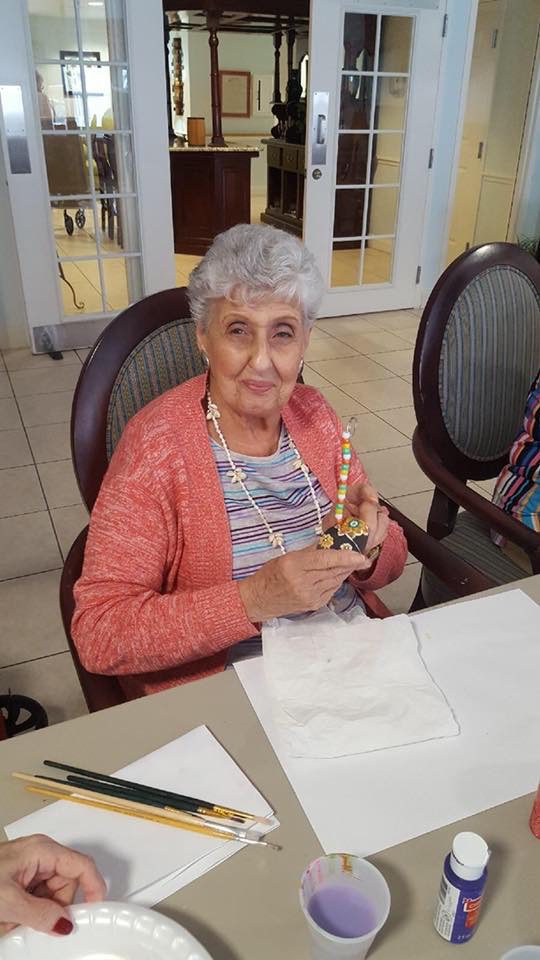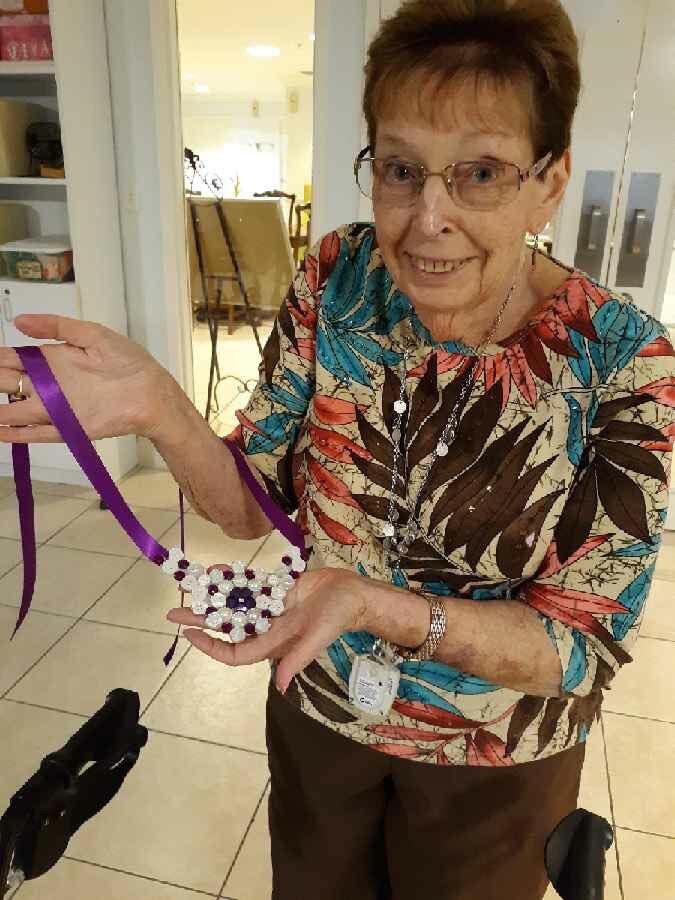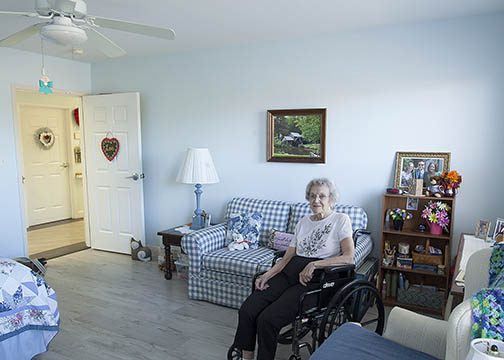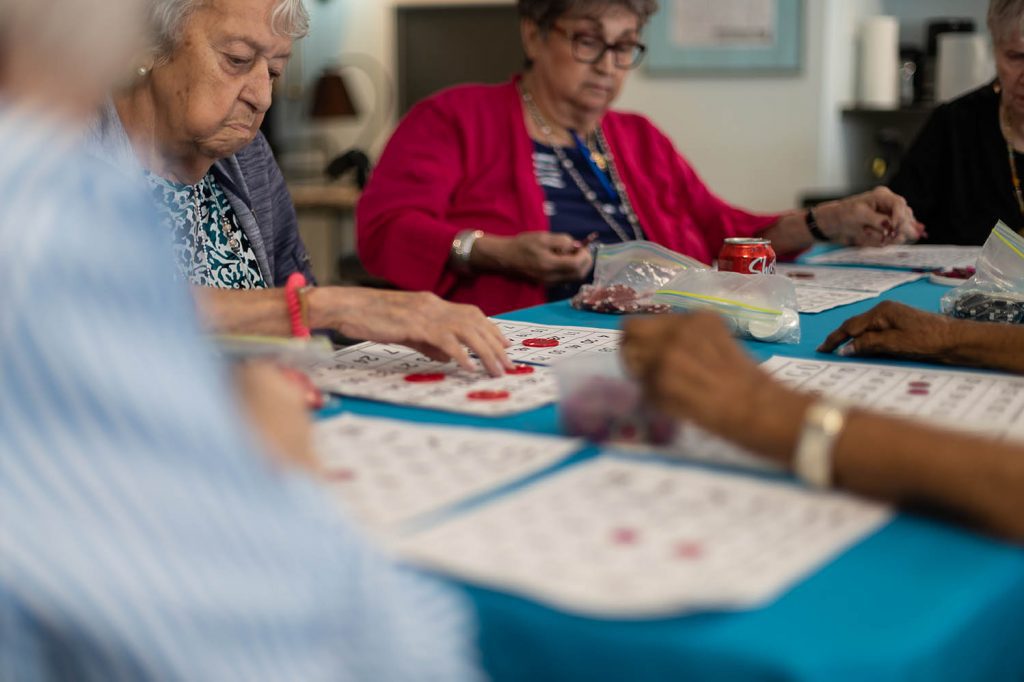Parent Onboarding Tips & Guide
We are brought into this world by loving parents, and as a consequence we assume a debt of gratitude that seems impossible to repay. For all they’ve done for us, from feeding, clothing, educating, but most of all, loving us in unquestionable fashion, it seems a small price to pay when making the promise of “I’ll never put you in a nursing home or assisted living.”
Unfortunately, we are brought up with fairy tales about living happily ever after and are routinely socialized that talking about death is a taboo subject. Compounding that is the notion, or wish, that our parents will die peacefully in their sleep… simply drifting away gently into the night, and as the poem implies, “And in between this world and next I’ll hold your hand in mine.”

Admitting a Parent Guide
Rarely, however, is that wish granted in a population where average life expectancy for a man is 76, and that of woman is 81. While modern medicine has done wonders in providing the means of sustaining life well beyond that which was expected decades ago, it comes at a cost. With increased life expectancy comes the risk of becoming a victim of a debilitating disease.
High on the list is the potential for cancer or some form of dementia. According to the American Cancer Society the estimated numbers of new cancer cases and deaths in 2019 is quite alarming (In 2019, there will be an estimated 1,762, 450 new cancer cases diagnosed and 606,880 cancer deaths in the United States.) Furthermore, according to a University of Michigan study, about 3.4 million people, or 13.9 percent of the population age 71 and older, have some form of dementia. As expected, the prevalence of dementia increased dramatically with age, from five percent of those age 71 to 79 to 37.4 percent of those age 90 and older.
Floor Plans

A Variety of Living Options
Private Bathrooms and Showers
Emergency response systems
Weekly housekeeping
Refrigerators and microwaves
Private laundry
Parking
Life Enrichment Programming
Admitting a Parent 101
- The Sandwich Generation
- A Pew Research Center study found almost half of all adults in their 40s and 50s have at least one parent age 65 or older, while also raising a young child or helping to financially support a child age 18 or older.
- Being Sandwiched Impacts Work and Wallets
- The Pew Research study also found one in seven middle-aged adults provides financial support to both a child and their aging parent.


The simple fact of the matter is a choice needs to be made. Become an emotionally burdened caregiver 24/7, or remain the loving child providing emotional support needed while one or both parents deals with the potential and likely exigencies of old age.
The biggest obstacle is facing the challenge of placing a parents in a nursing home or assisted living. We will naturally become reluctant to the fact mom or dad needs a high level of round-the-clock care, something that we may not be able (or qualified) to provide on our own. This situation often comes with conflicted emotions like guilt, regret, and a sense of relief. How do we remain sensitive to our parent’s feelings while moving ahead with what we know must be done?
As difficult as it may be, it’s necessary for their ultimate well being to move from the subjective to the objective aspects of the needed decision. Take a modicum of comfort from the knowledge that each year, millions of other people like you face this dilemma. More than one in three Americans over the age of 65 will probably require nursing home care at some point. That means you aren’t alone in dealing with this issue. It also means that a lot resources are available to guide and support you.
Our Communities






Six Things To Consider As You Move To An Objective Evaluation
1. SHOULD I PUT MY PARENTS IN AN ASSISTED LIVING OR NURSING HOME?
- Install grab bars
- Install an electric chair lift for the staircase, or wheel chair ramps in lieu of access stairs to the home.
- Remove area rugs
- Raise chair-heights
- Replace bathtubs/showers with walk in tubs/showers
- Install ramps, and railings
- Install a Medical Alert System with a personal pendant.
- Set water heater thermostat to 120 degrees or below
- Keep flashlights handy in several rooms around the house
- Program emergency phone numbers im your cell phone, and have a list handy.


2. WHEN IS IT TIME?
Baring a serious accident or illness, making the decision a moot point, the signs may not be so clear. Many chronic maladies associated old age (i.e., dementia) manifest themselves slowly and on a day to day basis, you may not recognize them. Alzheimer’s in particular develops slowly and in the early stages you may simply ignore the signs or attribute them to old age absent mindedness.
As much as we may want our parents to maintain their autonomy, that independence may come at a price. Parents who still drive will have their reflexes slow down with age, thus making them more accident prone where they can seriously injure or kill themselves or others. Routine trips to the store, doctor appointments, or other destinations can become a challenge. What was one an “auto-pilot” trip becomes a challenge with forgetting how to get to the destination or return home.
3. WHAT ARE THE SIGNS?
- The activities of daily living are basic, routine tasks, such as bathing, dressing, easting, and using the toilet, that most people are able to perform on a daily basis without assistance.
- Instrumental activities of daily living are more complex tasks that require a certain amount of physical dexterity, sound judgement and organization skills. A senior’s ability reflective of that person’s ability to live safely and independently.
Basic Activities of Daily Living
Most senior care providers and health professionals group the activities of daily living into the following six categories:
- Bathing: includes grooming activities such as shaving, and brushing teeth and hair
- Dressing: choosing appropriate garments and being able to dress and undress, having no trouble with buttons, zippers or other fasteners
- Eating: being able to feed oneself
- Transferring: being able to walk, or, if not ambulatory, being able to transfer oneself from bed to wheelchair and back.
- Continence: being able to control one’s bowels and bladder, or manage one’s incontinence independently
- Toileting: being able to use the toilet
The instrumental activities of daily living include the following:
- Using the telephone: being able to dial numbers, look up numbers, etc.
- Managing medications: taking the appropriate medications and correct dosages on time
- Preparing meals: making appropriate food choices and preparing meals safely
- Maintaining the home: doing or arranging for housekeeping and laundry
- Managing finances: budgeting, paying mortgage/rent and bills on time, etc.
- Shopping: being able to shop for groceries and other small necessities, and transport purchase from store to home.


- Using transportation: being able to drive or use public transportation for appointments, shopping, etc.
4. PLANNING AHEAD, CONVINCING YOUR PARENT, AND WORKING WITH YOUR SIBLINGS.
Here’s how to develop your family plan:
- Learn about the differences between assisted living and nursing home care.
- Enlist your parent’s input as early as possible. When an elderly parent refuses assisted living or nursing home care, it’s often because he or she feels backed into corner. That’s why it’s a good idea to stay sensitive to your mom or dad’s feelings.
- Avoid making promises you can’t keep. When your parents are still relatively healthy, it’s tempting to day that you’ll never place them in a nursing home. It feels like a noble gesture. Quite realistically, it might not be a promise you can keep. As demands for care consume
- Get your siblings involved right away. This may very well prove to be the biggest challenge. Seeking family harmony makes this whole process much easier. If there are siblings, it’s best to contact them early in the process and invite them to work with you for the benefit of your parent. You and your siblings may need plenty of time to overcome disagreements or long-held resentments–with you, with your parent, or with each other. All of you will need to lay your cards on the table and decide what you’re able to contribute going forward. Each of you will also need to discuss your expectations for inheritance and how you will reconcile those expectations with the need to care or your aging parent. (In many families, some siblings worry about “spending away their inheritance.”) Inevitably, one sibling will end up taking one more responsibility than the others but try to get everyone’s involvement and buy-in before moving forward. Seek family counseling if necessary. It might also be extremely beneficial to seek the advice of a family law attorney and the practicality of having a revocable living trust in place.
- Get input from outside your family. It’s hard to be objective about your loved ones. As you get into this process, you may be so involved in the situation that you overlook critical information. By enlisting help from a social worker, geriatric specialist, or independent senior care adviser, you can ensure that you and your family get an unbiased assessment of your parent’s current and future needs. With expert recommendations, you may be able to settle disputes more easily and arrive at a plan that everyone agrees on more quickly.
- Start selling your parents on the benefits of long-term residential care. Learning how to convince a parent to go to assisted living or into a nursing home is an essential part of the process if you want a successful outcome. The key is to make your mom or dad feel like it isn’t already a forgone conclusion. Let your parent warm up to the idea instead of coming across as too pushy. Express the concerns you have about being able to provide


- Increased safety
- Better physical care
- Fewer responsibilities
- Greater social vitality
- More opportunities to make new friends
- Closer access to fun activities
- More meaningful and enjoyable family interactions
- Visit and evaluate several local Assisted Living care communities. Take your parent along for as many facility tours as he or she is willing to go on. Try to keep the vibe light, fun, and adventurous. As you visit each nursing home or assisted living center, try to:
- Observe how staff members interact with residence.
- Determine how long physically or cognitively impaired residents are left alone at any one time.
- Pay attention to how quickly staff members respond to urgent situations.
- Figure out if the facility provides adequate care to residents in your parent’s particular condition.
- Spend time with other residents, participating in a few activities if possible.
- Ask visiting family members of current residents for their opinions of the facility.
- Sit down for one of the facility’s meals and ask how the kitchen handles special dietary needs.
8. Inquire about security and whether the facility has a special section for residents with dementia.
9. Check out the living quarters and visualize how your parent’s room might be furnished and decorated.
10. Find out if any of your parent’s friends or acquaintances are residents of the facility.
Inquire about the facility’s procedures for handling medical emergencies.
11. Talk with the facility’s administrator about cost, funding options, availability, and what steps are required in order to admit your parent.
- Look into Medicaid funding (if necessary). Many Americans don’t have the financial resources to pay for assisted living or nursing home care out of their own pockets. However, most people without financial means can get coverage for long-term care in a nursing home or assisted living through Medicaid. And some states now provide Medicaid coverage for assisted living facilities or in-home care. Your parent may even be able to keep his or her home as a protected asset. But it’s a good idea to apply for Medicaid funding before your parent actually needs it since it can take a long time to get approved.
- Let everything sink in. It’s normal to feel a little overwhelmed throughout this process. Your mom or dad may feel especially overwhelmed. Change is hard. It may take your parent a long time to get used to the idea of living in a residence for seniors. So, try to be patient. Maintain a gentle attitude. Let everyone process all the information you’ve gathered. Your parent may eventually become enthusiastic about moving to a community, especially if you and your siblings present a positive, unified front. However, for some seniors, it takes an injury, medical emergency, or other brush with danger to finally be convinced.


5. DEALING WITH ASSISTED LIVING OR NURSING HOME GUILT AND OTHER DIFFICULT EMOTIONS.
- Give yourself time and permission to grieve.
- Acknowledge and accept your emotions for what they are.
- Seek reconciliation with your parent for unresolved conflicts or old resentments.
- Shift your focus away from feelings of obligation and toward feelings of unconditional love. Understand that you are no longer the exhausted caregiver, but can once again resume the role of a loving child.
- Remind yourself frequently that your mom or dad is safer, less isolated, and better cared for.
- Take comfort in knowing that you did not cause your parent’s physical or cognitive impairments.
- Remember that you’re doing the best you can under difficult circumstances that are largely out of your control.
- Acknowledge the fact that nursing home care is a necessary reality for millions of people, including your parent.
- Give yourself permission to have a life that isn’t totally focused on your parent.
- Establish healthy boundaries by steering conversations away from attempts to guilt-trip you.
- Make each visit with your mom or dads as fun or meaningful as you can.
- Recognize that you still get to be a caregiver, just in a different way.
- Set up new ways to connect with your parent when you can’t be there (such as phone calls, texts, or video chats).
- Seek emotional support from your friends or close family members, your spiritual community, or support groups.
- Consider one-on-one counseling or therapy if your guilt persists despite your best efforts to let it go.
6. PROVIDING ONGOING LOVE, CARE, AND SUPPORT.


Maintaining good communication with the community’s caregivers will be a major part of supporting your parent. But be prepared for some potential obstacles. Some of the issues that can hinder communication between families and professional caregivers but always be open and honest and bring your concerns to the Community Administrator. Keep communicating!
Most professional caregivers are remarkable people. If you show them respect and acknowledge the good work they do, they will generally respond in kind. But it’s always important to stay vigilant, watching for any signs of elder abuse or neglect. If at any point you observe a decline in conditions at the care community or suspect abuse, don’t hesitate to contact the Administrator or the region’s long-term care ombudsman. Or if you need additional help in overseeing your parent’s care, consider hiring a professional seniors’ advocate if you live out of state.
It’s long been noted that “ getting old isn’t for sisters.” Aging gracefully is a matter of perspective and ability to do so despite the maladies that may be beset those in their senior years. None will do it quite the same nut maintaining a healthy and realistic attitude about the cards that have been dealt, it will help immeasurably.
Growing Old Gracefully
Written by Susan Noyes Anderson
“You’re growing old so gracefully,”
is what I’m often told.
Is that a compliment?
Should I be proud, or just consoled?
Do wrinkles glide across my face?
Can old bones creak with style?
Are arching joints more pleasing when
you bend them with a smile?
If silver hair distinguishes and
bifocals refine, then
I am truly elegant,
for both of these are mine.
I’m pleased that most observers find
my aging done with grace,
but I would gladly be more gauche
if that would slow the pace!

Our Blog
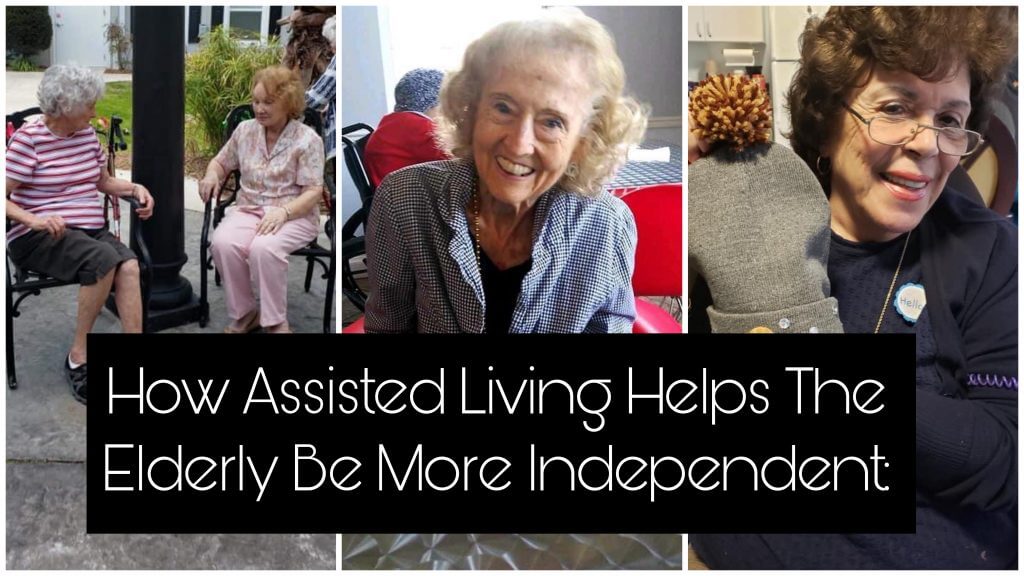
How Assisted Living Helps The Elderly Be More Independent
How Assisted Living Helps The Elderly Be More Independent: The transition from a familiar home
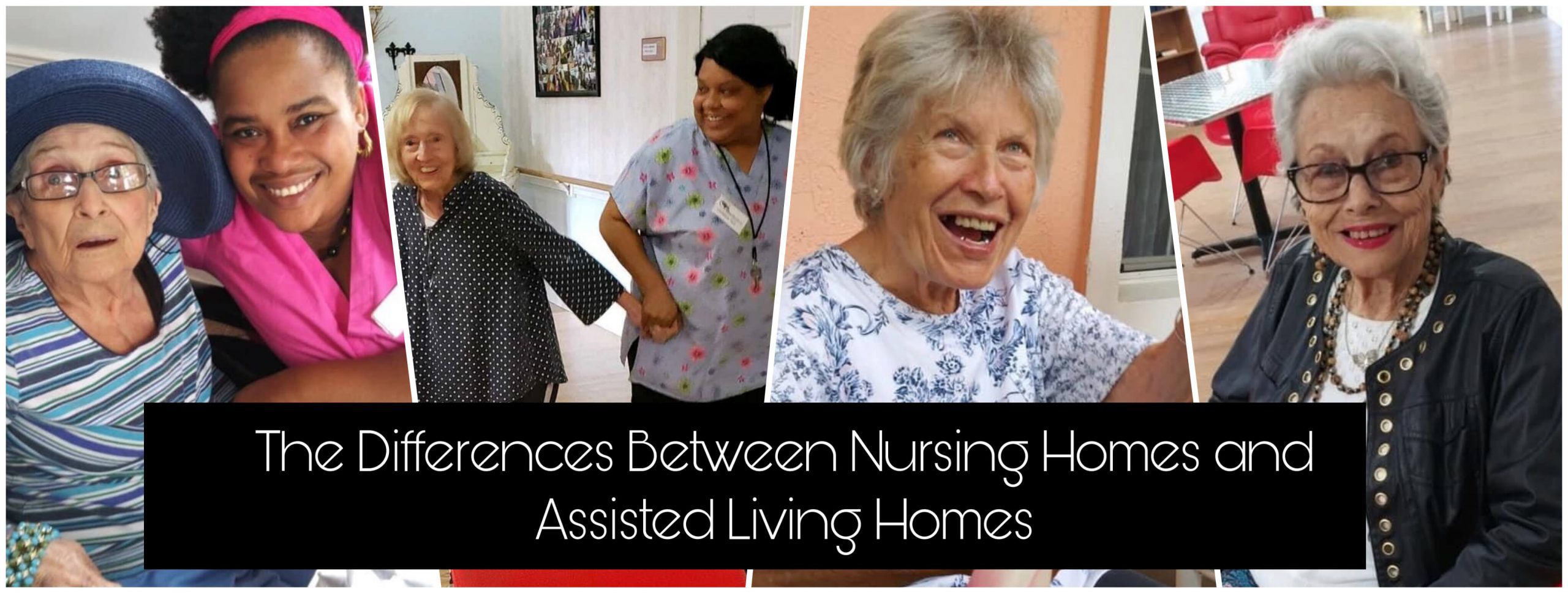
The Differences: Nursing Homes vs. Assisted Living
The Differences Between Nursing Homes and Assisted Living Homes: When you think of assisted living
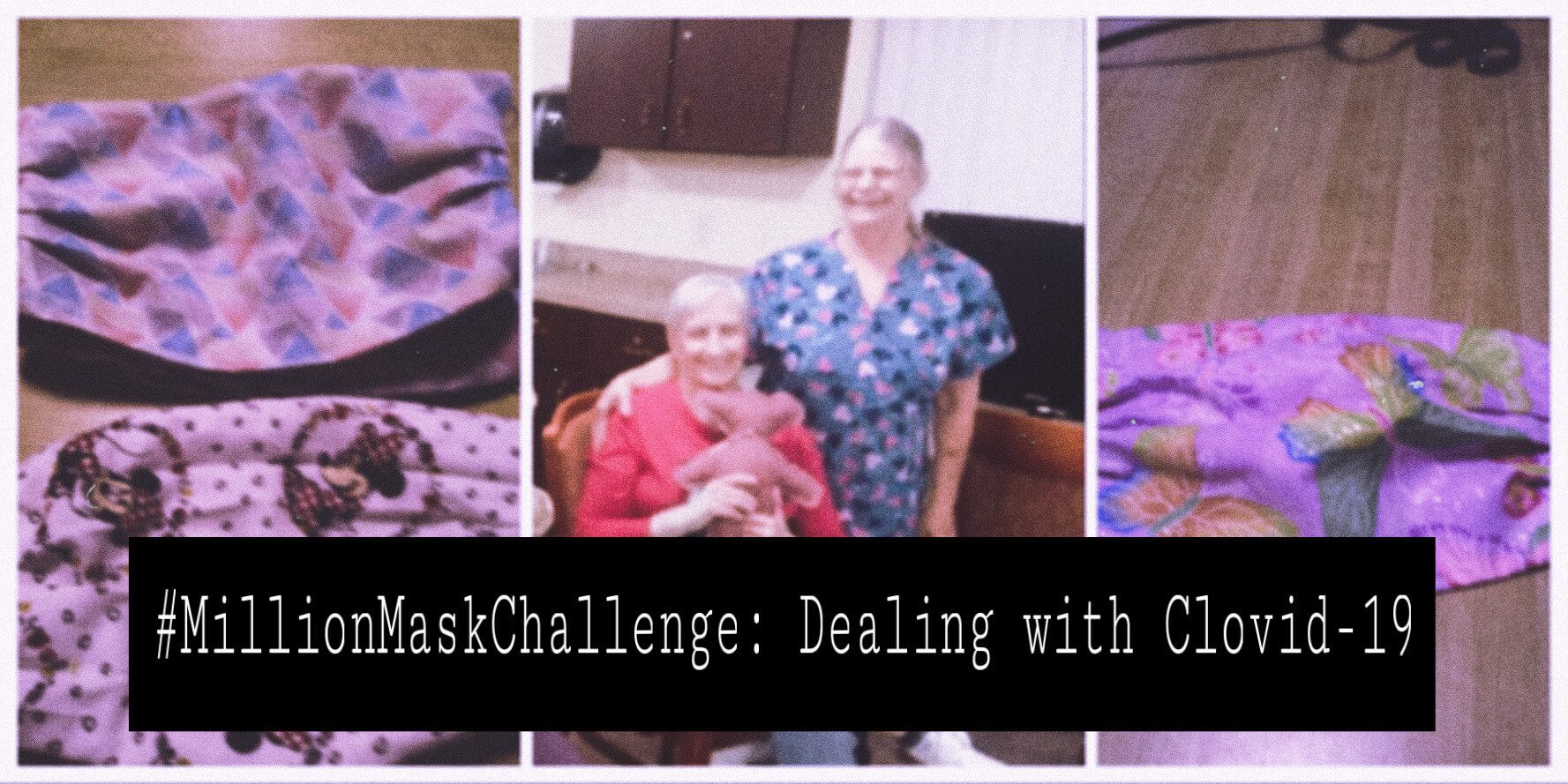
Inspiring #MillionMaskChallenge at Hampton Manor
#MillionMaskChallenge: Dealing with Covid-19 There is no doubt that Covid-19 is changing the country and








